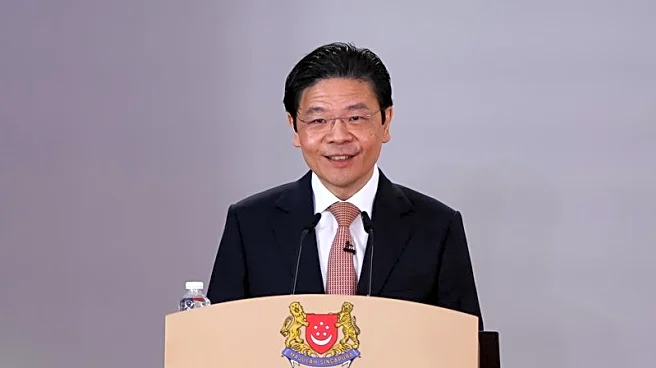What's Happening?
A report by the Basel Action Network (BAN) has revealed that millions of tons of electronic waste from the United States are being exported to developing countries in Southeast Asia, creating a 'hidden
tsunami' of hazardous waste. The investigation identified at least 10 U.S. companies involved in exporting used electronics to Asia and the Middle East. These exports often bypass regulations by being mislabeled under trade codes not associated with electronic waste. The report highlights that this practice is contributing to environmental degradation in countries like Malaysia, Indonesia, and Thailand, where the waste is often processed under unsafe conditions. The U.S. e-waste shipments are estimated to account for about 6% of all U.S. exports to Malaysia from 2023 to 2025.
Why It's Important?
The export of e-waste from the U.S. to Southeast Asia poses significant environmental and health risks. Developing countries often lack the infrastructure to safely process such waste, leading to pollution and health hazards for local communities. This situation underscores the broader issue of 'waste colonialism,' where wealthier nations offload their waste management challenges onto less developed countries. The practice not only strains local waste management systems but also violates international treaties like the Basel Convention, which aims to prevent hazardous waste trade from non-signatory countries like the U.S. The report raises questions about the effectiveness of industry certifications meant to ensure safe recycling practices.
What's Next?
Authorities in Southeast Asia are increasing efforts to curb illegal e-waste imports. Recent actions include the seizure of significant amounts of U.S. e-waste by Thai and Malaysian authorities. These countries are likely to continue strengthening their regulatory frameworks and enforcement measures to combat the influx of hazardous waste. Meanwhile, the report may prompt calls for stricter regulations and oversight in the U.S. to prevent the export of e-waste under misleading trade codes. The situation could also lead to increased scrutiny of companies involved in the e-waste trade and their compliance with environmental standards.
Beyond the Headlines
The ongoing export of e-waste highlights ethical concerns regarding the global waste trade. It raises questions about the responsibility of developed nations to manage their waste domestically rather than transferring the burden to less equipped countries. The issue also points to the need for more sustainable electronic product life cycles, including better recycling practices and the design of products that are easier to recycle. Additionally, the situation may drive international discussions on updating and enforcing global waste management treaties to address the challenges posed by the growing volume of e-waste.












